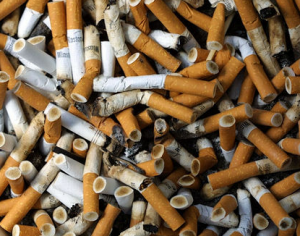- 4 reads

What’s really behind the changing public opinion about global warming? The climate science denier has done its best to point to the problematic e-mails from the University of East Anglia and recent discoveries of two or three mistakes in the several-thousand page IPCC reports to as the reason. Despite the fact that there are many authoritative sources that have reiterated that the science is solid (Associated Press, Fact Check, Nature, 18 leading U.S. scientific organizations, the UK Science community and many other independent scientific institutions and scientists and explained how the errors are overblown.), the confusion over what we really know and don’t know about climate science is no accident. As Mother Nature Network discussed earlier this week:
The reason for all of this uncertainty, argues James Hoggan, author of Climate Cover-Up: The Crusade to Deny Global Warming is a concerted effort by public relations professionals to undermine climate change science and create uncertainty among the public — all to please clients who would be negatively affected by meaningful carbon legislation to curb emissions.
The last time that there was such a broad-based attack on well-established science with such broad implications on public health, the subject was cigarettes and the health effects of tobacco smoke.
The tobacco industry waged a 50-year long campaign against regulation by sowing doubt about the effects of cigarette smoke on health. But the strategy of sowing doubt to forestall regulation or legislation isn't the only thing that the tobacco industry and climate deniers share in common.
Some of the same groups and even same people who fronted for Big Tobacco are now fronting for Big Oil and Coal. Not only that but they are using the same strategies to distort the true science. Just read what the esteemed medical journal The Lancet pointed out in December:
There are many similarities between tobacco use and climate change. In addition to causing huge damage to population health, both cause substantial adverse social, economic, equity, and gender effects. Both have long lead times between cause and effect, and both require long-term policies and monitoring systems… Both issues are influenced by strong vested interests; moreover, delaying tactics and the use of “junk science” by opponents of change have impeded effective policies…. The main lesson from tobacco for the Copenhagen conference is that delay in agreeing on international policy and poor implementation will cost countless lives. We must act now in the interests of future generations.
And this from Jeffrey Sachs in the British paper The Guardian:
Today's campaigners against action on climate change are in many cases backed by the same lobbies, individuals, and organisations that sided with the tobacco industry to discredit the science linking smoking and lung cancer. Later, they fought the scientific evidence that sulphur oxides from coal-fired power plants were causing "acid rain." Then, when it was discovered that certain chemicals called chlorofluorocarbons (CFCs) were causing the depletion of ozone in the atmosphere, the same groups launched a nasty campaign to discredit that science, too.
For those who want to see these tobacco connections for themselves, check out this video from the American News Network (part of the Huffington Post Investigative Fund) produced last year before the House passed its historic comprehensive climate and energy legislation.
It was actually the Union of Concerned Scientists’ comprehensive report, “Smoke, Mirrors & Hot Air: How ExxonMobil Uses Big Tobacco's Tactics to "Manufacture Uncertainty" on Climate Change” that made many of the first and clearest connections between the campaigns against climate and tobacco science. That report is worth a close read.
This post originally appeared on NRDC's Switchboard.
Pete Altman is NRDC's Climate Campaign Director in Washington DC. NRDC is a non-profit organization dedicated to protecting the environment, people and animals. NRDC was founded in 1970 and is comprised of more than 300 lawyers, scientists and policy experts, with more than one million members and e-activists.

